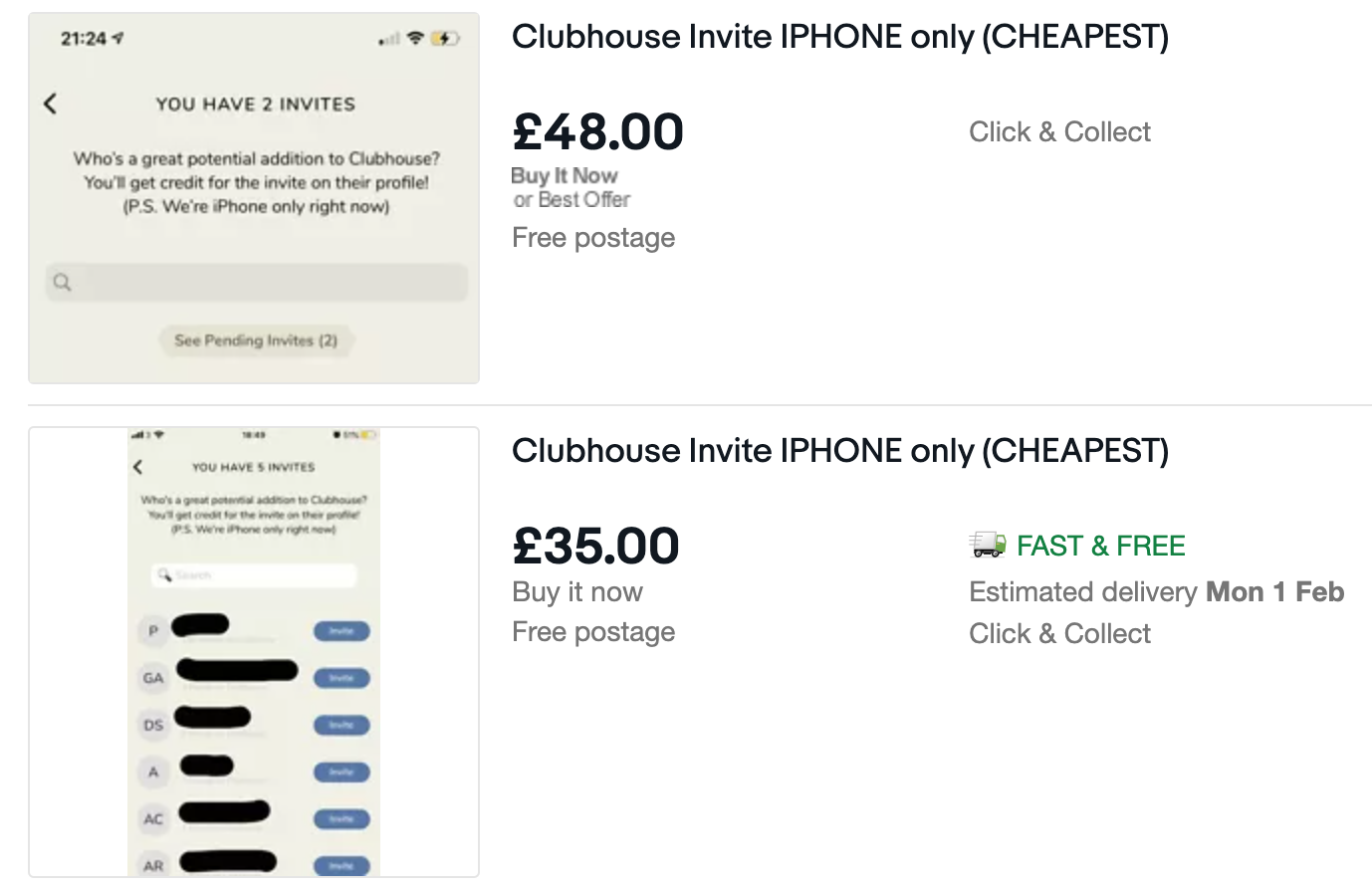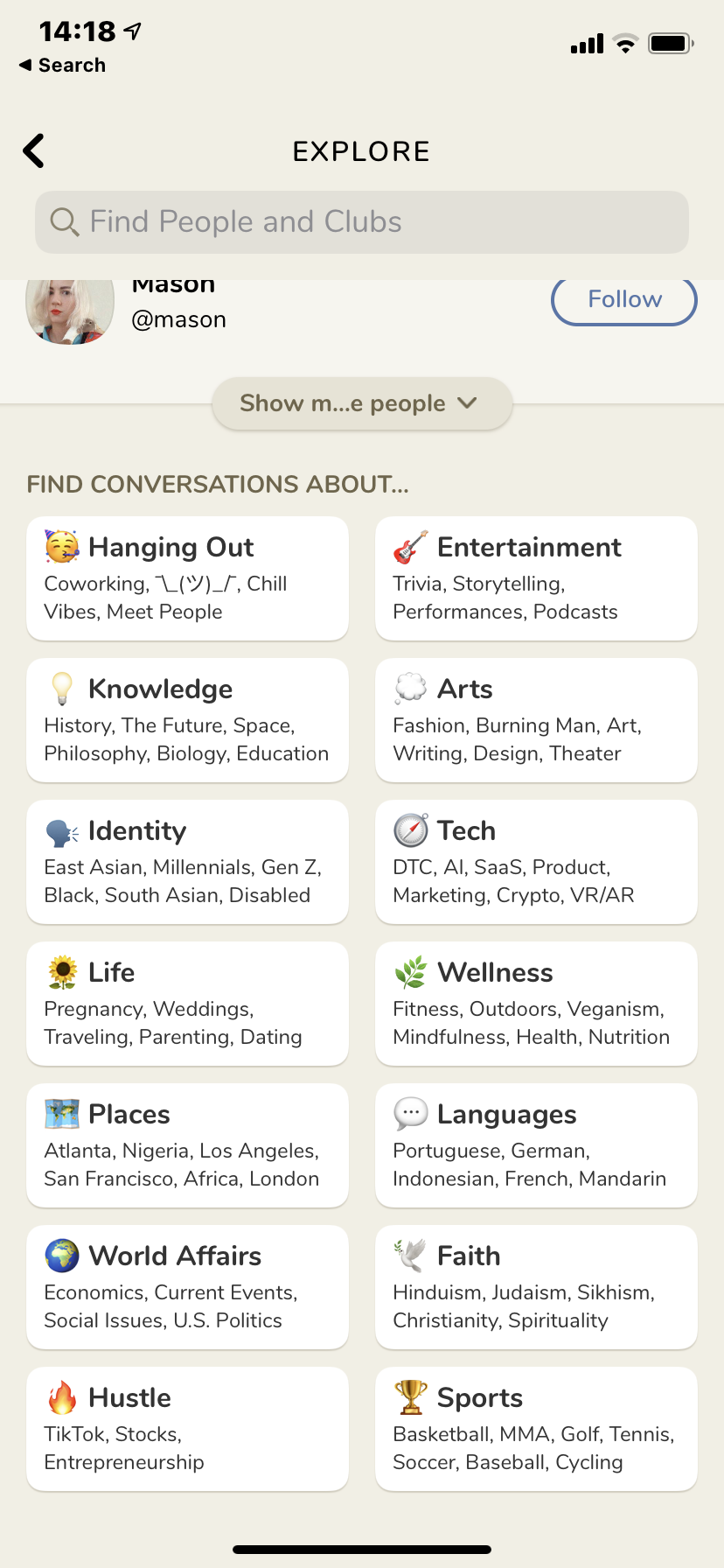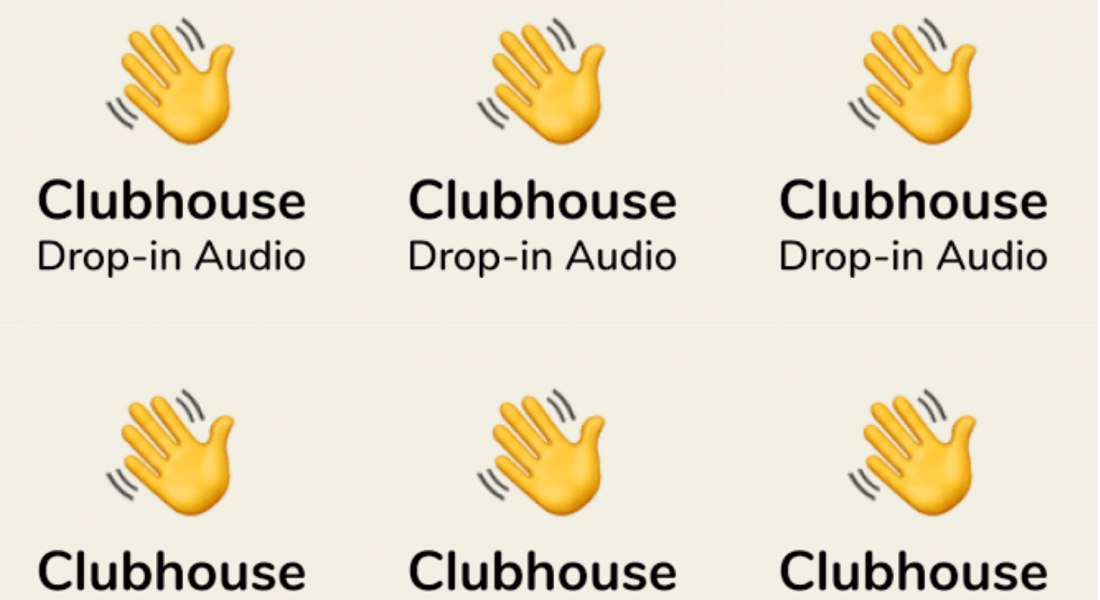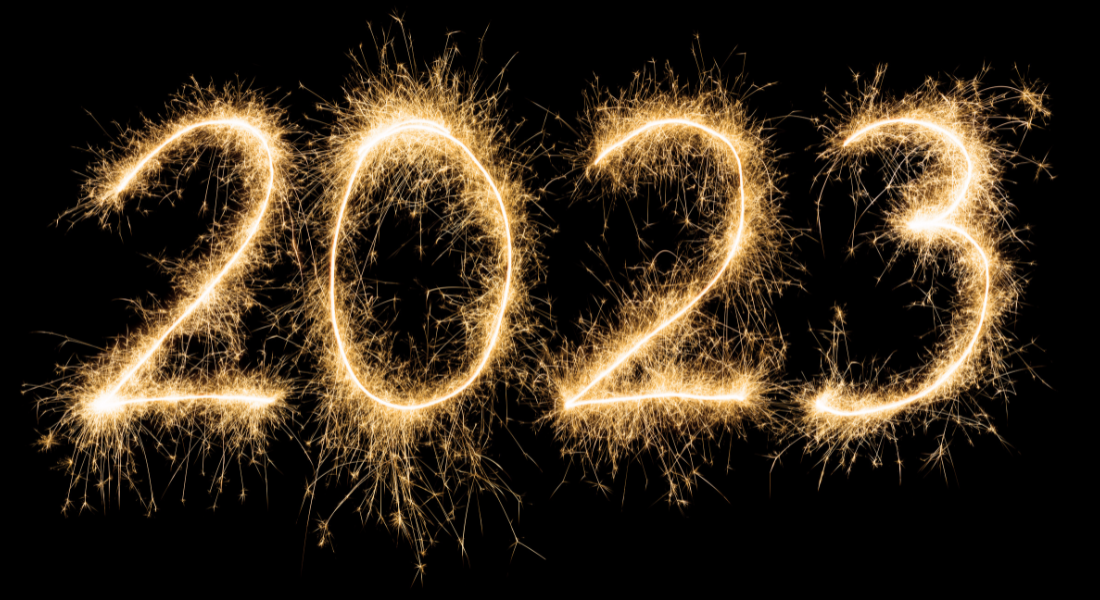C lubhouse. Heard of it? The new social platform based on voice, Clubhouse launched in 2020 in the US and then rapidly ramped up its download figures in Europe this January. With some heavyweight celebrity endorsements (Jared Leto and even Queen Oprah are big fans), and Vogue branding it “the New FOMO-Inducing Social App To Know”, netizens looking for their next social fix have been desperate to sign up. But how does it work? And is it any good? I set out to find out.
I (naively) assumed that the first step on my journey to becoming a master Clubhouser would be via the Clubhouse website. Which is where I hit my first hurdle:

Luckily, my socially-savvy boss Nikki (who is always one step ahead) was already a member – cue a bout of my own FOMO – so I roped her into using one of her two precious invites on me. Perhaps she wasn’t aware that people are flogging their invites on eBay (see below)…

This is a big part of the appeal that the developers of Clubhouse have been able to foster. An exclusive club (house), only currently available on iPhone, that appeals to users looking for a sense of connection in a new way, when perhaps Zoom-fatigue has set in and people feel they have exhausted other social platforms.
And in the absence of in-person events and conferences, a place where people can feel inspired and learn, and share their own thoughts in moderated chat rooms, has natural appeal. This is why when you first log in you tick your interests, which determines which content you will see. And the sheer volume of chat rooms available means you need this filtering system.

Debates, lectures, performances, mindfulness workshops, discussions – literally anything you can have an opinion on or have an interest in learning about you will find an event for. You can drop into “What dragons are you slaying today?” or “The power of prayer” or “5 Minutes of daily meditation”, all before you get stuck into any industry-specific events. You can hear about Bitcoin, learn about new marketing tactics and meet people from all over the world.
I joined the ‘No agenda, only vibes‘ room, which saw the London-based hosts warn all the newbies to Clubhouse, who, like me, have their profile pics adorned with a party hat emoji for the first week of their Clubhouse life, to ‘tread these hallways carefully’. This felt rather ominous, but was a useful reminder that not all of the content will be high quality, or even appropriate for all ages. The hosts then asked members of the room to raise their virtual hands if they wanted to ‘come on stage’, Clubhouse-speak for joining in the conversation, where they would be unmuted by the hosts. People from Nigeria, Belgium, Kenya and the UK introduced themselves and shared an update of what they were up to. Despite the lack of an agenda, I found it insightful, interesting and a bit of an escape. I also learnt some new things, like why vinyl records sound better than their digital counterparts (because there’s very little compression…).
For me, Clubhouse feels like an amalgamation of an industry conference, a live podcast, and good old-fashioned talk radio. It’s perhaps unsurprising that an app like this has emerged from a year of lockdowns. And with a huge, literally captive audience, the opportunities are massive for using this platform to share your own skills and beliefs and in-turn enhance your reputation.
Go on, be brave, start a room! Host a new event!
That’s my next blog…
Share this:





